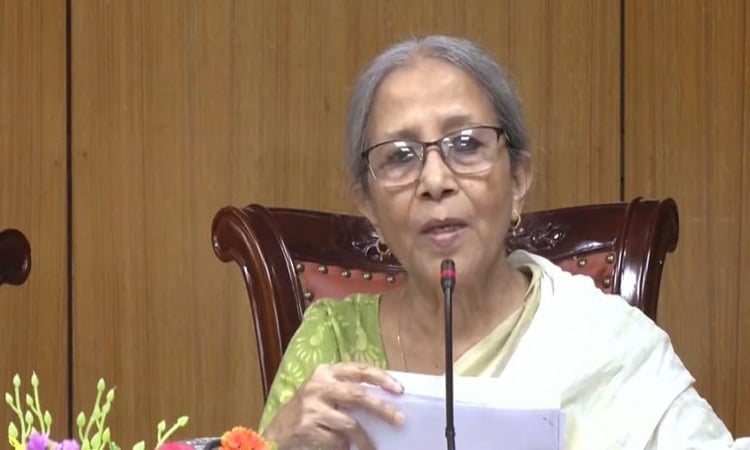News Flash
News Flash

DHAKA, Nov 23, 2025 (BSS) - Fisheries and Livestock Affairs Adviser Farida Akhter today said uncontrolled use of antibiotics is creating a serious health crisis in the country as well as in the areas of livestock, fisheries, and agriculture.
“Preventive practices, multisectoral approach recognizing the interconnectedness of public health, animals, plants, and environment and a strong regulatory framework are essential to address the situation,” she said.
Farida said this while speaking as the chief guest at the Multisectoral One Health AMR Seminar, organized on the occasion of World Antimicrobial Resistance Awareness Week 2025 at a Gulshan hotel here.
The adviser said although people are anxious about recent 5.7-magnitude earthquake, an even more persistent threat is looming large due to excessive and irrational use of antibiotics.
According to the data presented at the seminar, the antibiotic resistance rate in Bangladesh has already reached 94 percent, which is extremely alarming. Besides, the rate of antibiotic use in the poultry sector is 76.9 percent, which directly affects human health and the environment.
She said, “Parents often demand antibiotics for their children if a fever does not reduce. Even 11-month-old infants are becoming resistant which is extremely concerning.”
Farida said it is not enough to think only about human health, rather animal, forest, and wildlife must take in cognizance.
“Food, animals, and human health are deeply interconnected. This is why the concept of ‘One Health’ is so important,” she added.
The adviser said if food is not safe, human health can never be safe. Therefore, strong public demand must be created for “antibiotic-free chicken, antibiotic-free fish”, she said.
Noting that creating social pressure and awareness about safe food is one of the most effective ways to combat resistance, she also said adding that awareness of antimicrobial resistance should not remain limited to just one week rather continuous campaigns must be conducted throughout the year in the educational institutions and on the occasion of various national days.
She called upon the media to play an important role to this end.
Referring to her recent experience at the climate conference in Brazil, the adviser said that as global warming intensifies, the prevalence of new diseases and the risks of antimicrobial resistance are also increasing.
She stated that climate change and antimicrobial resistance—two global crises—are deeply interconnected. She emphasized that coordinated and well-planned initiatives are necessary to address the challenges.
Director General of the Department of Livestock Services Dr. Md. Abu Sufiun chaired the seminar while FAO Bangladesh Country Representative Dr Jiaoqun Shi, WHO Bangladesh Country Representative Dr Ahmed Jamsheed Mohamed, World Organisation for Animal Health (WOAH) Regional Representative for Asia and the Pacific Dr. Hirofumi Kugita (recorded), Bangladesh Livestock Research Institute Director General Dr. Shakila Faruque, and Additional Director General of the Directorate General of Health Services Prof. Dr. Khair Ahmed Choudhury also spoke as the special guests.
Director (Extension) of the Department of Livestock Services Dr. Begum Shamsunnahar Ahmed gave welcome address while Director of the Department of Livestock Services Dr. Md. Shahinur Alam presented a keynote paper on the current situation of AMR/AMU in the livestock sector.